What do you think of Thai doctors finding that heavy cold and AIDS drugs work better against a new type of pneumonia? Can it bring improvement in epidemic prevention and control?
A patient with severe neocoronavirus infection is reportedly undergoing a ThaiAfter 48 hours of treatment with a combination of anti-AIDS and anti-influenza medication, significant improvement was observed and the test results became negative.. And the fact that 8 out of 19 diagnosed patients were cured by this method, coupled with the fact that Thailand's medical technology is more advanced (much more so than you might think), makes this a cause for concern.
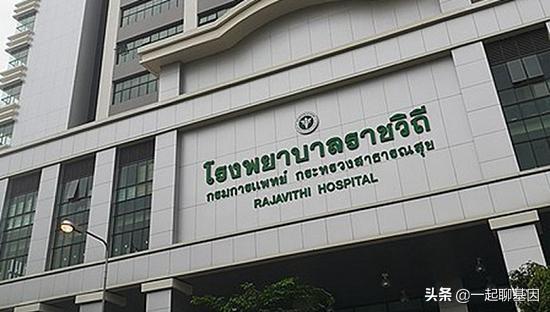
Anti-AIDS drugs + anti-flu drugs that work?
Specifically, the program that it usesAnti HIV drugs i.e. lopinavir/ritonavir and anti flu drugs i.e. oseltamivir.
Lopinavir/ritonavir, is a drug that has been getting a lot of exposure lately, but many people would not be familiar with it if not for this outbreak.Lopinavir/ritonavir, tradename Cliche, which is not actually a new drug developed for 2019-nCov, but is a drug primarily used to treat HIV.
Lopinavir/ritonavir, theRecommended drugs in successive editions of the National Health Commission's Diagnostic and Treatment Program for Pneumonia with Novel Coronavirus Infections.

Why does this drug work?
Simply put, the target of this drug is the protease, and novel coronaviruses, like HIV, require a bit of protease cleavage in their life cycle to form a mature, functional protein, otherwise they're just a half-baked product.Lopinavir/ritonavir inhibits protease activity, and viruses that have not finished replicating inside the cell are finished, thus killing the virus.However, this drug is an HIV prescription drug, so don't even think about getting it, you can't.
The anti-influenza drug oseltamivir
Oseltamivir, as you are all too familiar with, is a worldwideThe "miracle drug" and drug of choice for the flu. In the 2019 edition of the National Health Commission's Influenza Treatment Program, antiviral treatment is recommended for oseltamivir, and oseltamivir is mentioned in drug prevention.
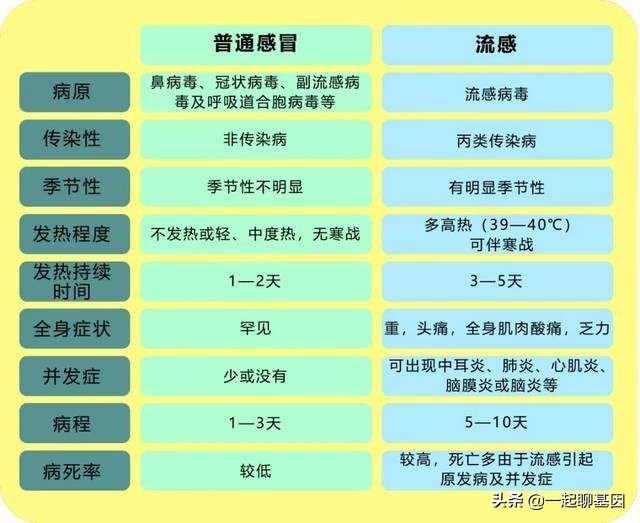
But this is only a recommendation for influenza viruses and not for the new coronavirus in this case. In fact, consecutive editions of the National Health Commission's "Diagnostic and Treatment Program for Pneumonia Infected by Novel Coronaviruses" also do not recommend oseltamivir for the treatment of novel coronaviruses.
The use of oseltamivir must be accompanied by a full professional evaluation. As one of the few drugs currently available to deal with influenza, several papers in recent years have expressed concern thatOseltamivir abuse may causedrug-resistant. Once resistant, it can result in a drug-free state in the face of influenza.
This therapy in Thailand.Currently the relevant experiments are incomplete and have not been subjected to large-scale clinical trials, and the successes have been as a last resort in extreme situations。
A reminder is needed.To prevent new crowns, do not take these medications lightly!
I'm "Talking Genes", welcome to follow me.
What do you think of Thai doctors finding that heavy cold and AIDS drugs work better against a new type of pneumonia? Can it bring improvement in epidemic prevention and control?
The Thai doctors used the anti-flu drug oseltamivir and the anti-AIDS lopinavir/ritonavir to treat a 71-year-old Chinese woman with a new type of pneumonia, and her condition showed marked improvement after 48 hours of use. This treatment has certainly given hope to many doctors and patients, and the case report was published in a medical journal in Thailand.

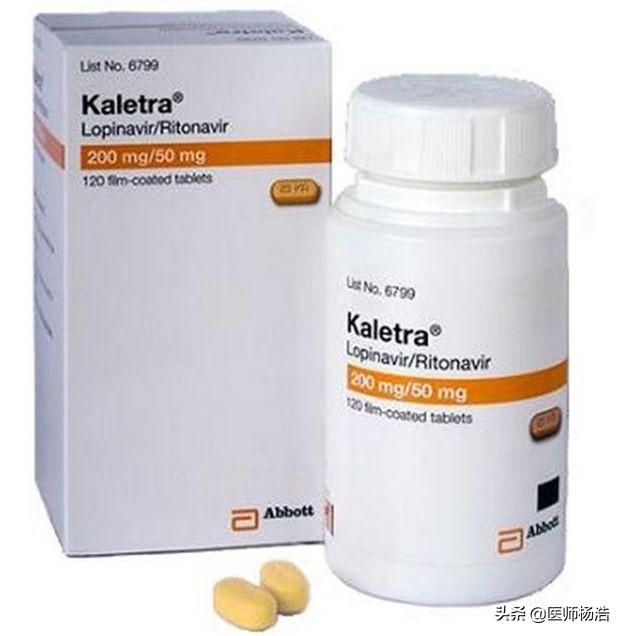
But whether this treatment is indeed effective for all patients needs further study, and what the Thai doctor reported is only an isolated case. Oseltamivir, the drug of choice for the treatment of influenza A and B, is designed to inhibit viral replication by inhibiting the enzyme neuraminidase, which inhibits the release of progeny viruses from the host cells, but whether it also inhibits the replication of the new coronavirus remains unknown. Lopinavir/ritonavir is the antiviral drug of choice for the treatment of AIDS, which works by inhibiting the HIV protease enzyme, thereby interfering with the replication process of the virus, but whether it can also inhibit the replication of the new coronavirus also needs to be proved by more research data.
However, lopinavir/ritonavir has been used to treat SARS patients before and has also had some therapeutic effect. Wang Guangfa, a respiratory and critical care medicine specialist in Beijing, China, after being infected with this neocoronavirus, thought that lopinavir/ritonavir was also effective for him personally after taking lopinavir/ritonavir. Therefore, although there is no specific drug for the new coronavirus, lopinavir/ritonavir can be used as a trial therapeutic drug, which is also recommended in the Diagnostic and Treatment Program for Pneumonia Infected by the New Coronavirus (Trial Fifth Edition). This is very good news for the treatment of neocoronaviruses, which is also likely to bring about some improvement in the control of the epidemic.
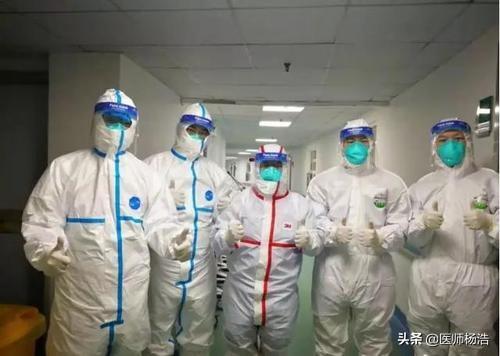
However, from the perspective of epidemic prevention and control in the whole country, the prevention and control of infectious diseases has never been more about prevention than treatment. In the absence of specific drugs or a vaccine, strengthening the isolation of infected persons, interrupting the spread of the virus and preventing its further spread are the most important things to do.
As us ordinary people, it's important to go out less, wear masks, wash our hands regularly, build up our resistance, and not add to the country's woes during this time.
Welcome to like, forward, what you want to say welcome to leave a message below. I am physician Yang Hao, specializing in common diseases, multiple diseases diagnosis and treatment, chronic disease management, health science. If you want to know more about medical knowledge, welcome to pay attention to this headline!
Effective also need to have authoritative experts to recognize and accept the line otherwise empty talk, Chinese medicine are very good results but so far no one dares to promote a large number of now only in the search for the root cause of the disease.
So far, there has only been 1 case of cure and 1 case of improvement in Thailand, so it's hard to say what the actual situation is. After all, even Thailand is waiting to see what happens to the other patients who have received the combination of anti-HIV and anti-influenza regimens.
The cocktail therapy used in Thailand may be a new beginning. Until now, there was no precedent for combining anti-HIV drugs with anti-flu drugs. The total number of confirmed cases in Thailand is now 19, with 8 cases cured, but only 1 case has actually been cured with the cocktail therapy, so no one can say for sure how effective it will be.
In fact, there is a precedent in China where a single anti-HIV drug was effective in treating CKP. But again, because the sample of cures was so small, it was hard to tell whether the combination of drugs worked or whether other factors were involved.
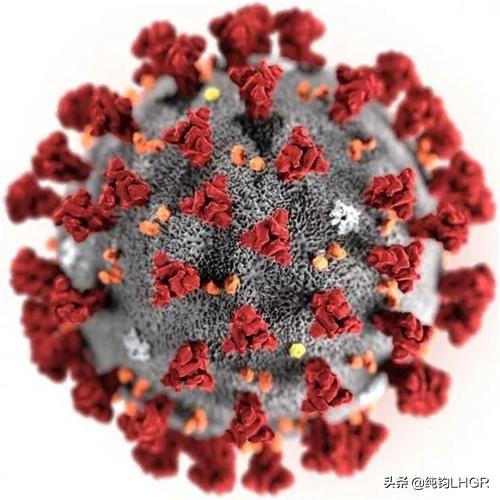
As for why no one tried to use this treatment before, the main problem is still the drug, the Thai side of the anti-HIV drugs used lopinavir, ritonavir, with the anti-flu drug oseltamivir, oseltamivir is nothing to talk about, but lopinavir, ritonavir, the side effects are still very strong, the side effects involve the human body's blood, nerves, digestive multiple systems, in many cases, the use of this drug, life In many cases, after using this kind of medicine, the life is saved, but the person is also wasted.
As in the earlier SARS period, the clinical use of prolonged high doses of adrenocorticotropic hormone resulted in "SARS sequelae" in many of those treated.
If we say that with the new crown pneumonia today, it can actually adopt the same approach as it did back then, that is, to go on a hormone binge, which can save lives. But the question is, by saving the patient's life, is it intended that he should live the rest of his life suffering and begging for his life?
Many people see the "48-hour cure" as an impressive result, but it is hard to say whether the result is really that good. Not to mention, considering the prognosis of those who received the treatment, what kind of impact this cocktail therapy may have in the future must be observed for a period of time, so even if all the 19 patients in Thailand are cured, it is unlikely that this cocktail therapy will be widely used immediately.
Otherwise, how is this any different from hormone therapy in the first place? In particular, the side effects of drugs manifest themselves to a different degree in each individual. Saving a patient's life and then destroying his future, making the patient sink into misery forever for the rest of his life, should the patient thank you or hate you?
To summarize, from my personal point of view, firstly, whether the cocktail therapy does have miraculous effects needs to be observed; secondly, the side effects of the medication on the patients who have received the rescue treatment need to be observed.
The two observations add up to a short period of time, I'm afraid. It is estimated that by the time this therapy is widely used in the clinic, this outbreak will be almost at an end. And if the second situation is difficult to control, it will be even more empty.
Let's just hope we got lucky this time and actually found a shortcut.
Went to read the original report and the specific medications used were lopinavir (lopinavir) and ritonavir (ritonavir) for HIV, along with oseltamivir (oseltamivir) for the flu together and in mega doses!!!!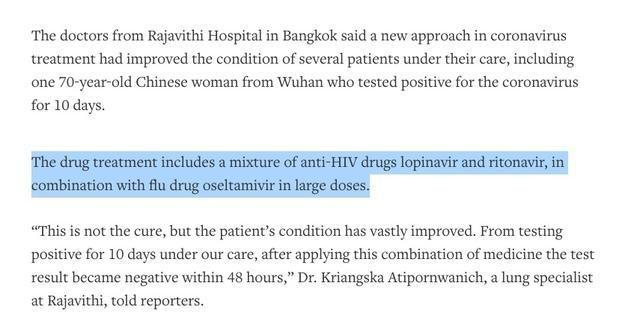
[1] Lopinavir is a protease inhibitor that binds to the catalytic site of the HIV protease and interferes with the assembly process of the virus, and is therefore used as an antiviral agent. Ritonavir is also an HIV protease inhibitor, but low doses of ritonavir can also increase lopinavir blood levels by inhibiting hepatic metabolism. It is for this reason that lopinavir is often used in combination with low-dose ritonavir to treat HIV infection
[2]. Oseltamivir is the "miracle drug" and the drug of choice for the treatment of influenza worldwide. It can inhibit the mature influenza virus from leaving the host cells, thus inhibiting the spread of influenza virus in the human body to play a role in the treatment of influenza.
[3] There was indeed a clinical trial of SARS, and it was found that this anti-HIV drug seemed to have some effect on the treatment of SARS.
[4]. In the clinical trial, a total of 41 patients were treated with "Lopinavir, Ritonavir Tablets" + Ribavirin. Ribavirin is not a treatment for SARS, but it was used as an antiviral drug. Trial results found that after treatment, the patient mortality rate was only 2.4%. Routinely 111 SARS patients have been treated and the mortality rate was 28.8%! Lopinavir and ritonavir tablets did play a role. Only then SARS passed and the related experiments were not continued. This time 2019nCoR is back, and it is no wonder that many doctors remember this method again.
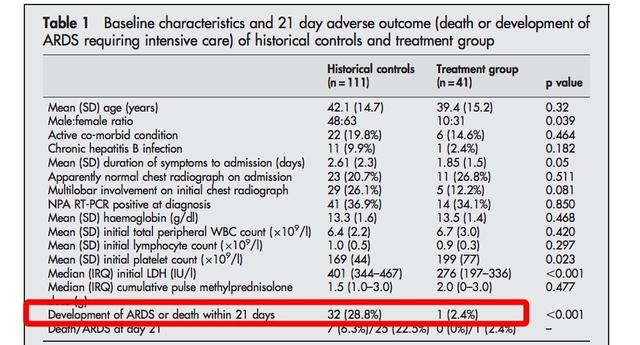
However, the current relevant experiments are not complete, no large-scale clinical trials, the success of the examples are in extreme cases of last resort, in order to prevent disease, do not take these drugs easily, will likely to produce significant side effects!
The topic of treating neomorphic coronavirus with HIV drugs 💊 has been around for some time.
Perhaps this is something that is not well researched in current medicine, but whether it does work or not, there is actually no accurate data.
Maybe HIV has some commonality with coronavirus, thus suppressing the viral activity after medication. But I personally believe that as of now, autoimmunity still plays an important role in the recovery of patients.
It's too soon to tell what Thai doctors have found out about the effectiveness of heavy colds and mochi drugs against the new coronavirus pneumonia;
As of today, the cumulative number of cases diagnosed in Thailand is 33, 10 cases were cured, these figures do not provide a large number of reliable clinical trial data for these drugs; of course, some patients have different physical and immune systems, these drugs will still play a role; specific drugs and vaccines for the prevention and control of epidemics are still in the world's research and development, and I believe that in the near future there will be a special drug and a vaccine to eliminate the virus. I believe that in the near future there will be effective drugs and vaccines to eliminate the virus.
At a briefing by the Thai Ministry of Health, Dr. Rajavithi Kriangsak, M.D., of a major public hospital in Thailand, said that it has been found that the use of medicines for severe colds and HIV to treat patients with pneumonia can achieve better results, and that the treatment has been found to improve patients' conditions within 48 hours, and that the symptoms of a patient who had a serious condition improved dramatically after receiving the treatment program. The symptoms of a patient in serious condition were significantly improved by the treatment program, and of course, the two drugs used in the program are standard medications for normal use.
The two Thai doctors believe that this group of drugs is so effective in severe cases of neocoronavirus pneumonia that they have reported their findings to a medical journal and will use this group of drugs in other patients.
Currently, 28 cases of neococcal pneumonia have been diagnosed in Thailand, and 8 cases have been cured. Thailand is one of the main countries fighting against the virus, Thailand infected people, will be the first batch of experimental use of the population, if the Thai epidemic is controlled, then the overall epidemic prevention and control are good.
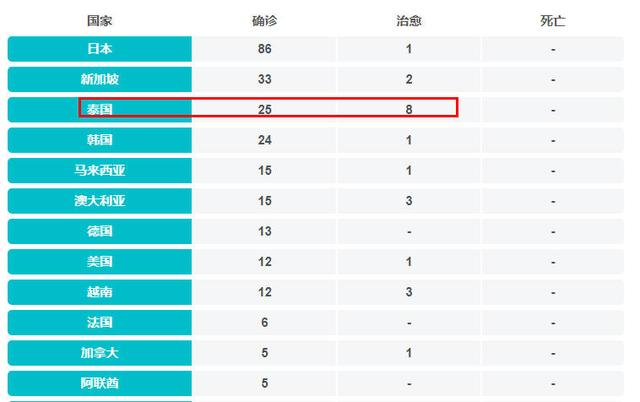
However, the relevant experiments are incomplete at present, there is no large-scale clinical trials, and the successes are all in extreme cases of last resort. In order to prevent disease, do not take these drugs easily, will may produce significant side effects!
China's National Health Commission previously issued the Diagnostic and Treatment Program for Pneumonia Infected by Novel Coronavirus (Trial Version 4), which once again reiterated that "there is currently no effective antiviral drug available, and the antiviral drug lopinavir/ritonavir (Crizal) can be tried out as a general therapeutic drug for pneumonia infected by novel coronavirus."
This question and answer are from the site users, does not represent the position of the site, such as infringement, please contact the administrator to delete.